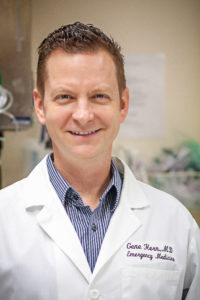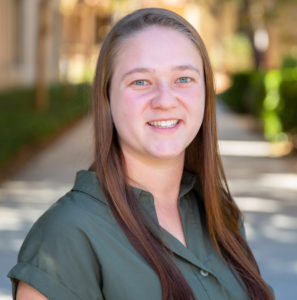California Opioid Prevention by EMS (COPE) Project
Bringing EMS professionals and public health together to address the opioid epidemic.
Introduction
The value of EMTs and paramedics in the emergent care of injury and illness is undoubted. The public knows lights, sirens, and help are just a call away. However, less understood is the invaluable role EMS providers can play in public health. Their unique position working out in the community, in patient's homes, makes these professionals often the right person, in the right place, and the right time to work ahead community health issues—to stop injury and illness before they occur.
The opioid epidemic is a community health issue that truly exemplifies this unique position EMTs and paramedics have to deliver lifesaving prevention resources. EMS professional already provide an essential safety net to individuals facing opioid use disorder. They act as a quick response for people who overdose on opioids in their normal 9-1-1 operations. This existing interaction with high-risk opioid use disorder populations makes EMS second to none in providing critical resources to those who need it most.
Read on to learn about:
- Opioid Learning and Action Network (LAN)
- Grant funding opportunities and programming resources
- View California's opioid risk and the EMS programs addressing it!
The Opioid LAN
Great ideas and programs should never be siloed. The Opioid Learning and Action Network (OpioidLAN) is periodic meeting where California EMS leaders can learn from experts in the opioid prevention space, hear from implemented programs across California, and share their programming successes or needs.
Watch the latest Opioid LAN session:
Resources
The COPE Project and CA Department of Public Health are currently offering funding assistance and training resources for California LEMSAs interested in buprenorphine programming.
The COPE Course is a free, 2-hour virtual continuing education class for California EMTs and Paramedics on synthetic opioids, harm reduction, and EMS-delivered prevention programs. It has three separate sessions, each followed by a short knowledge check. Learn more about the COPE Course.
The Public Health Toolkit is a resource put together by the California Paramedic Foundation that highlights EMS model for action on different community health issues. It promotes a data-driven, integrated programming approach based on proven successes.
California's Opioid Risk and EMS Programs
EMS buprenorphine bridging MAT services provided during normal 9-1-1 operations.
EMS distribution of naloxone during normal 9-1-1 operations.
Transport of opioid use and overdose patients to specialized emergency departments with buprenorphine bridging services.
Distribution of CAPF COPE Project opioid educational course.
EMS 6 Community Paramedicine Response team providing warm referrals, buprenorphine MAT bridging services, and more.
EMS distribution of naloxone during normal 9-1-1 operations.
EMS data-sharing with ODmaps service that helps identify opioid response areas.
EMS and Behavioral Health partnership for OUD treatment referral.
Recognition of opioid overdose surge via EMS data with public notification.
EMS-distributed naloxone during normal 9-1-1 operations.
EMS data sharing to opioid dashboard.
Monthly meeting to discuss EMS data as a part of Fatality Review.
Regular meetings between EMS and Public Health on efforts to address opioid crisis.
EMS-distributed naloxone program. Includes focused education.
Distributed CAPF COPE Project educational course.
Distributed CAPF COPE Project opioid course.
Continuing education updates provided to EMS workforce on opioid response.
COPE Team



Gene Hern, MD
Dr. Gene Hern is helps lead and facilitate the OpioidLAN portion of the COPE Project. Gene Hern received his MS in Medical Ethics from UC Berkeley in 1994 and his MD from UCSF in 1996. After residency in Emergency Medicine at Highland Hospital in Oakland in 1996. He stayed on as faculty starting in 2000. As a researcher, he has published 49 peer reviewed articles on topics as diverse as racial differences in pre-hospital opiate use to factors in transitions of care to the use of D10 in out of hospital hypoglycemia. His current focus is on quality improvement and pre hospital innovation and care of patients with Opiate Use Disorders.
Sara Kelly
Sara Kelly is the project coordinator for COPE. Sara has been an EMT for six years, working for a variety of services in both California and Massachusetts. Sara completed a masters in public health at Harvard University, focusing on the intersection of emergency management and public health. Prior to joining CAPF, Sara worked as a research project manager at Stanford Medicine focusing on cost-saving innovations in healthcare and AI applications in healthcare settings.
John Ehrhart
John is a co-founder and Director of the California Paramedic Foundation and leads the COPE Project. In is role at the Foundation, John has helped lead statewide and national programs promoting EMS prevention.


